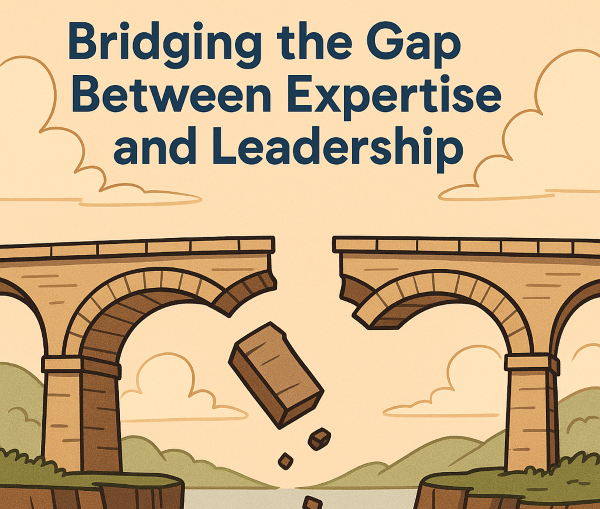Title: When Expertise Isn't Enough: The Leadership Gap in Higher Education
Bridging the Gap Between Expertise and Leadership
🎓 When Leadership Lacks Vision: A Personal Reflection on Higher Ed Hierarchies
In many large institutions—universities, colleges, and research institutes—titles like Dean, Department Chair, Assistant Director, and Chancellor carry weight. These positions are often occupied by individuals with impressive academic credentials: seasoned engineers, tenured scientists, or distinguished scholars. But what’s often missing from their resume is just as important as what’s listed—leadership training, management skills, and emotional intelligence.
I say this not as a critique of intellect, but as a reflection on a troubling pattern I’ve witnessed time and again. These leaders are brilliant in their fields, no doubt. But when it comes to managing people, navigating human dynamics, or fostering a positive culture, their lack of background in leadership, behavioral sciences, or organizational management becomes glaringly evident.
Too often, we conflate subject matter expertise with leadership capacity. But they are not the same. Leadership isn’t about knowing the most—it’s about knowing how to bring out the best in others.
The Result of a Narrow Pipeline
Many of these individuals rise through the ranks due to tenure, seniority, or institutional politics. Few, if any, have received formal training in managing diverse teams, resolving conflict, or cultivating inclusive environments. And yet, they are tasked with leading departments, shaping policies, and mentoring faculty.
This can lead to a style of leadership that is:
· Authoritarian rather than collaborative
· Reactive rather than visionary
· Transactional rather than transformational
These are leaders who often say, "You’re supposed to do this," instead of asking, "How can I support you in doing this well?" They manage by checklist rather than by inspiration. And this approach does more harm than good.
The Real Cost of Poor Leadership
The consequences are not abstract. Faculty morale suffers. Innovation slows. Bias festers unchecked. And most importantly, students—the ultimate stakeholders—feel the impact in the form of disengagement, inequity, and a lack of belonging.
Leadership in education isn’t just about running meetings or approving budgets. It’s about creating an environment where people can do their best work and students can thrive.
What Needs to Change in My Opinion
We need to stop assuming that academic excellence automatically qualifies someone to lead. It doesn’t.
Here’s what institutions should consider:
· Leadership Training for Academic Leaders: Before or upon stepping into leadership roles, deans and chairs should complete training in management, DEI, and behavioral dynamics.
· Evaluations Beyond Research Output: Performance reviews should include feedback on leadership effectiveness, emotional intelligence, and ability to foster collaboration.
· Diversifying the Leadership Pipeline: Elevate educators and administrators who have demonstrated not just scholarship, but people-centered leadership.
Final Thoughts
It’s time to ask hard questions: What does it really take to lead in education? And are we choosing leaders based on their capacity to guide people—or just their academic accolades?
Education deserves leaders who understand that managing isn’t leading—and leading starts with listening.
Let’s lead better. For our teams. For our institutions. And above all, for our students.
✨ What have you witnessed in academic leadership? Share your experiences below or reach out—I’d love to hear your thoughts.
#HigherEdLeadership #EquityInLeadership #InstructionalLeadership #EducatorVoices #LeadByExample #EducationMatters

